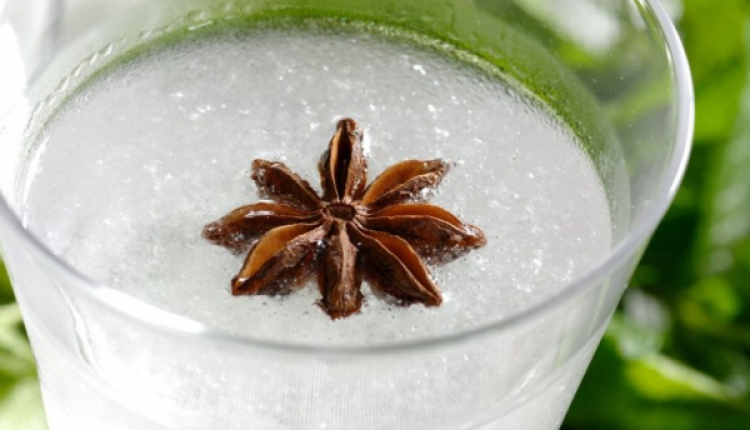Greek Spirits & Liqueurs ~ The Ultimate Mediterranean Aperitif
- by XpatAthens
- Wednesday, 17 June 2015

Their flavours are unique. Their essence feels like Greece and summertime. Ouzo, raki, tsipouro and masticha: among the wide selection of Greek products, three famous spirits and a liqueur are eager to reveal their secrets.
Greek Ouzo
Ouzo is considered the national drink of Greece. In technical terms ouzo is either produced by partial distillation or the admixture of plain alcohol with aromatic herbs. The best ouzos are of course the distilled ones with the main flavour being imparted by anise seeds, though other aromatics are often added, such as masticha from Chios, cinnamon, cloves or fennel, depending on the brand. Each location prides itself on its ouzo but the most famous are from the island of Lesvos and from Tyrnavos in Thessaly.
Ouzo is ideally served chilled, with or without ice, though many add water which releases the essential oils from the anise, turning the drink milky and heightening the aromas. You should always add ice or water to already poured ouzo and not the other way around.
Though ouzo is delightful with many kinds of traditional Greek meze, like a good ladotyri from Zakynthos or Mytilini or a kopanisti from Mykonos or Tinos, it is best known for its affinity for strong-flavoured seafood such as the octopus mentioned above or marinated anchovies. Spicy pickled peppers also go well.
Traditional Raki and Tsipouro
Apart from ouzo, Greece is known for another pair of considerably stronger distilled local drinks, often confused with one another, raki and tsipouro. Frequently homemade, production peaks in the autumn after the grape-harvest with celebrations centred around the great distillation cauldrons.
Tsipouro is a traditional product that comes from mainland Greece while raki is from Crete. Both are made from grapes not destined for wine-making yet still capable of producing quality distilled spirits. The main differences among them are the degree of alcoholic content and the addition or not of anise seed, which is often added to tsipouro but never to raki.
Tsipouro with anise has pride of place in the tsipouro bars of Volos where it accompanies traditional delicacies from the region and Thessaly in general. Drink it either chilled or with ice.
Potent raki is enjoyed by Cretans of all ages, usually in shot glasses either chilled or at room temperature. They tend to accompany it with traditional products of Crete like cheese, local preserved meats, roasts or whatever else arrives at table including traditional sweets and pies. No excuse is needed to pour a glass at any hour of the day or night.
To read more, please visit: Discover Greece

